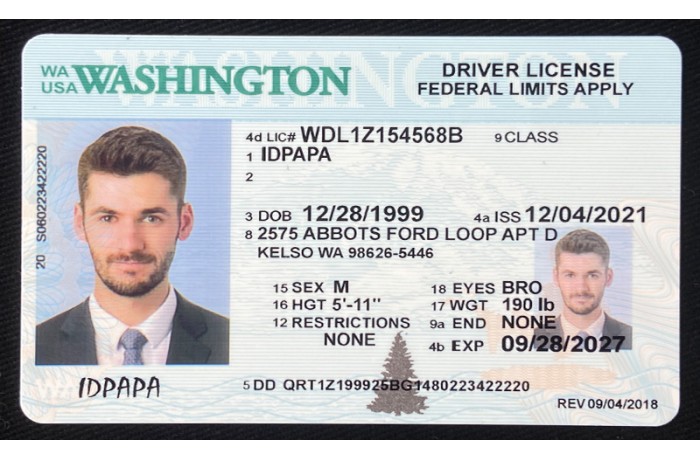Safeguarding Your Digital Persona: A Guide to ID Fraud Prevention
In today's digital landscape, our personal information are regularly at danger. ID fraud is a serious problem that can severely impact your economic well-being. To mitigate this threat, it's crucial to secure your digital persona and utilize strong security.
Begin by establishing robust passwords for all your profiles and avoid using the same password everywhere. Enable enhanced security whenever available to increase an extra layer of defense.
Remain mindful when disclosing your details online. Scrutinize websites and emails before accessing connections. Proceed with care when engaging in online transactions. Use encrypted networks and track your financial accounts frequently.
Report any suspicious activity to the relevant institutions. By following these recommendations, you can significantly protect your digital persona and reduce the danger of ID fraud.
Trekking Across the Labyrinth: Understanding copyright Laws and Their Implications
The world of identification can be a complex one, especially when it comes to underage individuals seeking entry to establishments that serve adult beverages. Constructing a copyright may seem like an easy way around these restrictions, but the consequences of such actions can be detrimental. Understanding the legal ramifications of possessing or utilizing a copyright is essential to avoiding potential trouble.
- Furthermore, it's important to recognize that regulations regarding copyright vary from state to state, so it's crucial to explore the specific rules in your area.
- Possessing a copyright can result in hefty fines, community service, or even incarceration.
- In addition to the legal outcomes, using a copyright can also damage your credibility and make it more difficult to obtain positions in the future.
Biometric Security: The Future of Identity Verification
As technology advances at a rapid pace, so too do the methods used to verify identities. Traditional authentication methods, such as passwords and PINs, are becoming increasingly vulnerable to breaches. Biometric security, which utilizes unique biologicaltraits for verification, is emerging as a more robust and secure solution. This technology leverages features like fingerprints, facial recognition, iris scans, and voice patterns to validate individuals with high accuracy.
- Biometric systems offer enhanced security by eliminating the risk of stolen or shared credentials.
- They provide a convenient and user-friendly experience, as users no longer need to remember complex passwords.
- The increasing adoption of biometrics in smartphones, laptops, and other devices further solidifies its position as the future of identity verification.
While biometric security presents numerous benefits, it also raises concerns about privacy and data protection. Implementing robust safeguards to ensure the secure storage of sensitive biometric data is crucial. As we move towards a future where biometrics play a central role in identity management, striking a balance between security Legal ID requirements and privacy will be paramount.
Rethinking Authentication
In today's digital landscape, the traditional password is increasingly becoming a vulnerable point. Cybersecurity threats are constantly evolving, making it imperative to explore more robust and innovative identity verification technologies. Biometric authentication, leveraging unique biological traits like fingerprints or facial recognition, offers a promising solution by providing a higher level of security than passwords. Additionally, multi-factor authentication (MFA) adds an extra layer of protection by requiring users to provide multiple forms of identification, including something they know, something they have, and something they are. These advanced technologies aim to create a more secure and seamless user experience, protecting sensitive data and improving online safety.
Embracing these innovative approaches allows organizations to mitigate the risks associated with traditional passwords and establish a more secure foundation for digital identity.
Addressing Identity Theft: A Multi-Layered Approach
Protecting your identity/personal information/data is paramount in today's digital landscape/world/environment. Identity theft, a growing/increasing/rampant threat, can have devastating/severe/profound consequences. Combatting this menace/issue/problem requires a multi-layered approach that encompasses several/various/multiple key strategies/measures/steps.
One crucial layer/aspect/element is strong/robust/comprehensive cybersecurity practices. This includes using complex/unique/strong passwords, enabling two-factor authentication/verification/approval, and being vigilant/aware/careful about phishing attempts/scams/schemes. Regularly monitoring/reviewing/checking your credit reports for any suspicious/unusual/irregular activity is also essential.
Additionally, adopting/implementing/embracing best practices for handling/protecting/safeguarding your personal/sensitive/confidential information can help mitigate/reduce/minimize the risk of theft.
Be mindful/cautious/conscious about sharing details/information/data online and be wary of unsolicited/unknown/suspect requests for credentials/logins/access. Remember, a proactive approach to identity protection is your best defense/weapon/shield against this persistent/growing/common threat.
Securing Your Privacy in a Digitally Connected World
In today's hyper-connected world, privacy is more valuable than ever. As we expose vast amounts of data online, it's vital to adopt measures to safeguard our cyber identity.
Frequently review your security configurations on all your platforms. Practice awareness when interacting with links, and avoid questionable websites. Leverage strong, complex passwords for each account, and consider using a encryption software to bolster your online protection.
Be aware of the latest data breaches, and inform yourself on protective strategies to reduce your exposure. Remember, defending your privacy is an ongoing process that requires attentiveness.
